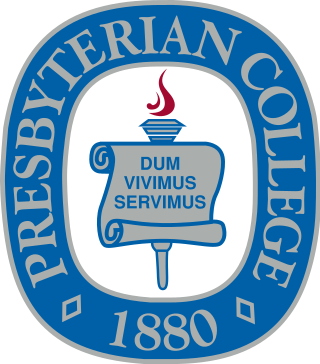
Vanderbilt University is a private research university in Nashville, Tennessee. Founded in 1873, it was named in honor of shipping and rail magnate Cornelius Vanderbilt, who provided the school its initial $1-million endowment in the hopes that his gift and the greater work of the university would help to heal the sectional wounds inflicted by the Civil War.
An ad eundem degree is an academic degree awarded by one university or college to an alumnus of another, in a process often known as incorporation. The recipient of the ad eundem degree is often a faculty member at the institution which awards the degree, e.g. at the University of Cambridge, where incorporation is expressly limited to a person who "has been admitted to a University office or a Headship or a Fellowship of a College, or holds a post in the University Press ... or is a Head-elect or designate of a College".

Vanderbilt Peabody College of Education and Human Development is the education school of Vanderbilt University, a private research university in Nashville, Tennessee. Founded in 1875, Peabody had a long history as an independent institution before merging with Vanderbilt University in 1979. The school is located on the Peabody Campus of Vanderbilt University in Nashville. The academic and administrative buildings surround the Peabody Esplanade and are southeast of Vanderbilt's main campus.
An academic honor code or honor system in the United States is a set of rules or ethical principles governing an academic community based on ideals that define what constitutes honorable behaviour within that community. The use of an honor code depends on the notion that people can be trusted to act honorably. Those who are in violation of the honor code can be subject to various sanctions, including expulsion from the institution. or in other words, honor code is like a pledge taken by students to the effect that they will uphold academic integrity and ethical behavior and will not engage in any kind of cheating, stealing, and misrepresentation. One of the first such codes was created at the College of William & Mary in the early 18th Century.

The Air Force Reserve Officer Training Corps (AFROTC) is one of the three primary commissioning sources for officers in the United States Air Force and United States Space Force, the other two being the United States Air Force Academy (USAFA) and Air Force Officer Training School (OTS). A subordinate command of the Air University within the Air Education and Training Command (AETC), AFROTC is aligned under the Jeanne M. Holm Center for Officer Accessions and Citizen Development at Maxwell AFB, Alabama. The Holm Center, formerly known as the Air Force Officer Accession and Training Schools (AFOATS), retains direct responsibility for both AFROTC and OTS.

Presbyterian College (PC) is a private Presbyterian liberal arts college in Clinton, South Carolina.

The Citadel, The Military College of South Carolina, commonly known simply as The Citadel, is a public senior military college in Charleston, South Carolina. Established in 1842, it is one of six senior military colleges in the United States. It has 18 academic departments divided into five schools offering 31 majors and 57 minors. The military program is made up of cadets pursuing bachelor's degrees who live on campus. The non-military programs offer 12 undergraduate degrees, 26 graduate degrees, as well as evening and online programs with seven online graduate degrees, three online undergraduate degrees, and three certificate programs.

Star of the West was an American merchant steamship that was launched in 1852 and scuttled by Confederate forces in 1863. In January 1861, the ship was hired by the government of the United States to transport military supplies and reinforcements to the U.S. military garrison of Fort Sumter. A battery on Morris Island, South Carolina handled by cadets from the South Carolina Military Academy fired upon the ship, considered by some scholars to have been effectively the first shots fired in the American Civil War.
University of Nashville was a private university in Nashville, Tennessee. It was established in 1806 as Cumberland College. It existed as a distinct entity until 1909; operating at various times a medical school, a four-year military college, a literary arts college, and a boys preparatory school. Educational institutions in operation today that can trace their roots to the University of Nashville include Montgomery Bell Academy, an all-male preparatory school; the Vanderbilt University Medical School; Peabody College at Vanderbilt University; and the University School of Nashville, a co-educational preparatory school.

Algernon Sydney Sullivan (1826-1887) was an American lawyer noted for his role in the business law firm Sullivan & Cromwell.

George Alexander Heard was chancellor of Vanderbilt University from 1963 to 1982. He was also a political scientist and adviser to U.S. presidents John F. Kennedy, Lyndon B. Johnson, and Richard Nixon.

John Southy Grinalds is a retired United States Marine Corps major general who served as the 18th president of The Citadel.

John Francis Hillen III is an American business executive and diplomat who served as the Assistant Secretary of State for Political-Military Affairs from October 11, 2005 to January 11, 2007. He served as President and CEO of Sotera Defense Solutions from 2008 to 2013. While at Sotera, he took the company public in November 2009. Hillen is the CEO and a Member of the Board of EverWatch Corporation.

Lynn C. Pasquerella is an American academic and the 14th president of the American Association of Colleges and Universities. Before she assumed this position, she was the 18th president of Mount Holyoke College in South Hadley, Massachusetts, serving from 2010 to 2016. She was a professor of philosophy at the University of Rhode Island for 19 years before becoming URI's Associate Dean of the Graduate School. From 2006 to 2008 she was vice provost for research and dean of the graduate school at the University of Rhode Island. She was the Provost of the University of Hartford from 2008-10. She also currently serves as the President of the Phi Beta Kappa Society.

Academic dress has a history in the United States going back to the colonial colleges era. It has been most influenced by the academic dress traditions of Europe. There is an Inter-Collegiate Code that sets out a detailed uniform scheme of academic regalia that is voluntarily followed by many, though not all institutions entirely adhere to it.

The Frank W. Mayborn Building houses the Human and Organizational Development program at Vanderbilt University in Nashville, Tennessee.
Michael B. Barrett is a former assistant professor of history at The Citadel, The Military College of South Carolina. He also served in the United States Army, and was promoted to brigadier general on February 12, 1999. He is a 1968 graduate of The Citadel, and joined the faculty in 1976. He earned his master's and Ph.D. degrees at the University of Massachusetts Amherst and focused on World War I. He retired from the Army in 2004 and from teaching in 2012.
Rufus B. Atwood (1897-1983) was the sixth and longest-serving president of Kentucky State University in Frankfort, Kentucky. He was one of the first African-Americans to hold a high position at a major academic institution.











